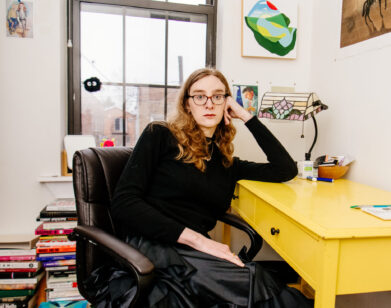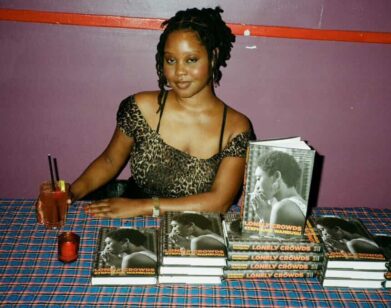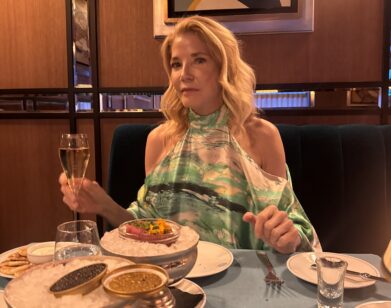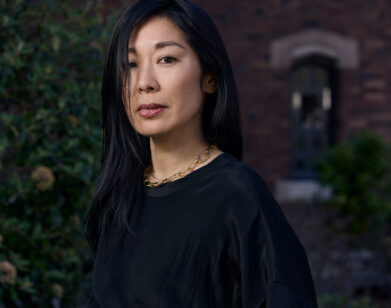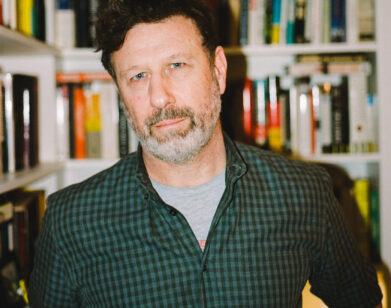How literary breakout Nana Kwame used Black Friday to inspire his dystopian short stories

In his debut book, Nana Kwame Adjei-Brenyah envisions a sci-fi dystopian America addicted to hardcore violence and holiday markdown sales.
———
Mall employees battling omelet-brained, merch-obsessed zombie customers on Black Friday. An amusement park called “Zimmerland,” where guests simulate murdering a black teen while defending their white, suburban neighborhood. A Groundhog Day–type scenario in which gruesome acts of violence fill the same morning on an endless repetitive loop. These are just some of the disturbingly dark and extremely brilliant dystopian premises in Nana Kwame Adjei-Brenyah’s debut short-story collection, Friday Black [Mariner]. Born in Queens and raised in Rockland County, New York, the 27-year-old writer got hooked on serial YA fantasy novels as a child and turned to writing early. “It was something people couldn’t take away from me,” he says. “And it was free. I didn’t need a camera or a microphone. I could do it on my own.”
As an undergrad at SUNY Albany, Adjei-Brenyah studied with his “literary fairy godmother” Lynne Tillman and, for his MFA at Syracuse University, worked with the maestro of satire George Saunders. While the wild inventiveness and piercing insights of Adjei-Brenyah’s stories could be described as Saunders-esque, the tough, nimble prose, which isn’t afraid to turn brutal or heartbreaking, is purely his own invention. His stories touch upon the volatile polemics of racism, consumerism, and violence in America. “It’s a privilege to think you can escape being political,” he says. “To make art is a political act.”
Most of the content germinates from an event or observation about the world, which he tweaks to draw out the absurdity. “I write satire as a way of putting humor against the edge of the terrible,” says Adjei-Brenyah, whose characters are often young black Americans caught in maddening systems of exploitation. More than one of his nightmare visions is set in a clothing store at a mall; although Adjei-Brenyah is now a professor of writing at Syracuse, he held down a retail job from the ages of 16 to 23. “I worked several Black Fridays,” he says. “And I literally saw one woman stepping on another woman for a pair of jeans.”

